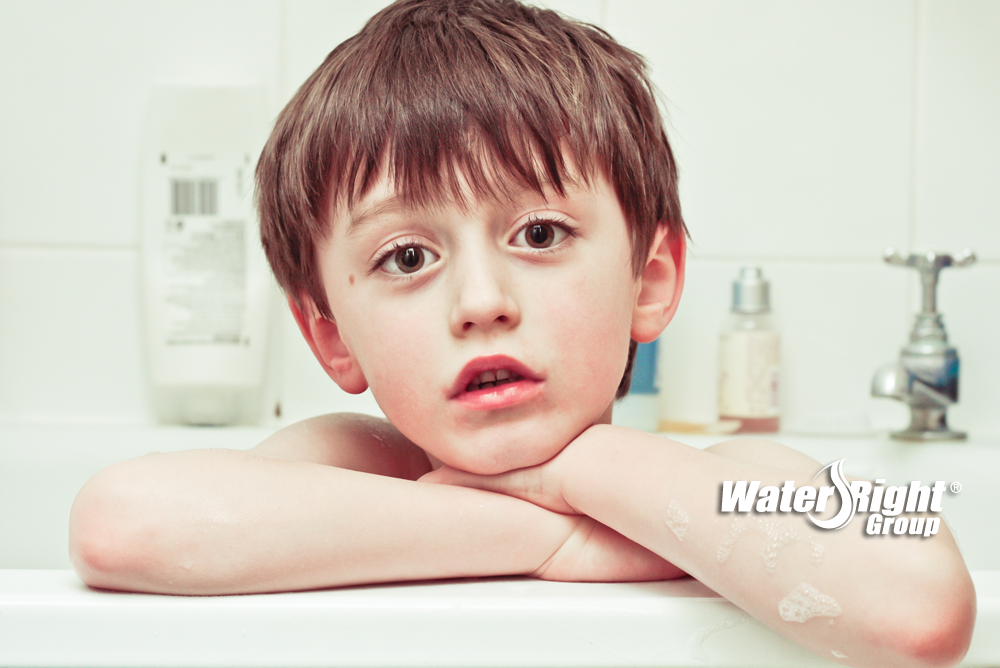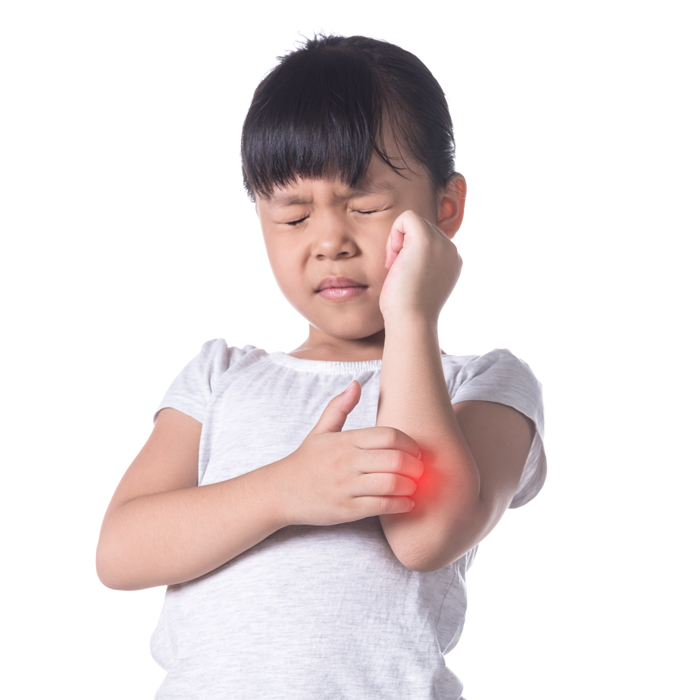
What’s the Connection Between Eczema and Hard Water?
Being a parent of a child suffering from the skin condition eczema, also known as atopic dermatitis, can be frustrating and leave you feeling helpless. Not only is it tough to watch a child deal with uncomfortably itchy, dry skin, trying to nail down the reason for eczema symptoms is often a complete mystery.
Many children eventually outgrow the condition. However, according to WebMD, about half of those with atopic dermatitis continue having symptoms into adulthood. The dry, itchy, flaky patches of skin are irritating and can also be embarrassing.
Parents often get perplexed trying to identify what causes eczema breakouts. You’ve no doubt tried eliminating foods, switching laundry detergent, or even avoiding certain fabrics. You may have tried different lotions or vitamins and nutritional supplements. Perhaps you’ve also questioned whether your home’s water quality could be part of the problem.
So, is there a connection between hard water and eczema?
Understanding Hard Water and Skin Health
Hard water contains dissolved minerals (calcium and magnesium). While those minerals are essential to a healthy diet, they can be problematic in your home’s water.
When it comes to hard water and bathing, those minerals clog pores and cause dry skin. Water containing dissolved minerals doesn’t work well with soap either. When combined with bathing products like body wash and shampoo, hard water leaves a film on your skin that’s difficult to wash away.
Essentially, the same soap scum you scrub out of the shower is left behind on the bodies of your family members when they get out of the tub or shower. Soap left on the skin may also cause dryness and irritation.
The logical conclusion is that hard water and its effects would likely aggravate eczema symptoms. But, is there proof that hard water is a problem, and can hard water actually cause eczema?
Checking the Stats: What Research on Eczema Suggests
It’s estimated that as much as 20 percent of children worldwide suffer from eczema. According to the National Eczema Foundation, the condition affects 31.6 million Americans. Coincidentally, around 90 percent of homes in the nation have water that’s considered hard by the EPA.
Still, it does not appear that hard water is a direct cause of eczema. Rather, recent research indicates hard water may be a factor in the development of eczema and almost certainly has the potential to exacerbate its symptoms.
A study from 2017, released by the University of Sheffield and King’s College in London, found exposing the body to hard water can damage the skin’s protective barrier, which increases sensitivity to irritants, such as those found in soap products.
The pH level of hard water appears to play a role. Researchers note that hard water is highly alkaline (a pH greater than 7), and it can increase the alkalinity levels of the skin. Because skin normally has a lower, acidic pH level, they believe hard water can disturb the skin’s natural function. Dr. Simon Danby, the lead author of this study, explains:
“By damaging the skin barrier, washing with hard water may contribute to the development of eczema – a chronic skin condition characterized by an intensely itchy red rash. Patients with eczema are much more sensitive to the effects of hard water than people with healthy skin.”
Researchers from University of Sheffield have moved on to a second phase of the study, which aims to find out whether softened water reduces the risks of eczema in young children.
“It is during the first few days and months of life that our skin is most susceptible to damage and most at risk of developing eczema. For that reason, we are now embarking on a pilot trial to investigate whether installation of a domestic water softener around the time of birth can prevent skin barrier breakdown and eczema in those living in hard water areas.”
A paper on this research was published in the Journal of Investigative Dermatology.
Can Soft Water Provide Eczema Relief?
Soft water is not considered a cure for eczema, and there’s still evidence needed to prove it is an effective preventive measure. But, this recent research supports the idea that soft water may be much better for skin than hard water. Because a water softener removes calcium and magnesium from your home’s water, it is ideal for bathing and won’t cause skin irritation like hard water can.
Whether you have children dealing with eczema, or are having a baby soon and want to protect his or her skin health, a water softener can provide the right water for your family. As a bonus, your kids’ bubble baths will be much bubblier, too, and your skin and hair will look better than ever!
Water-Right’s family of dealers and local water treatment professionals can visit your home, conduct a water quality analysis, and recommend the best solution.

